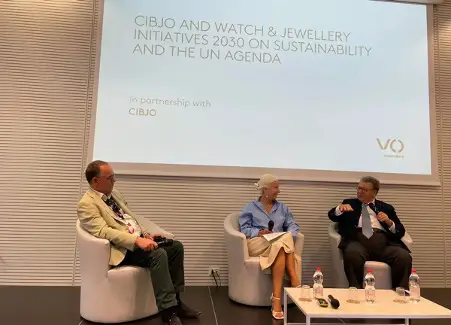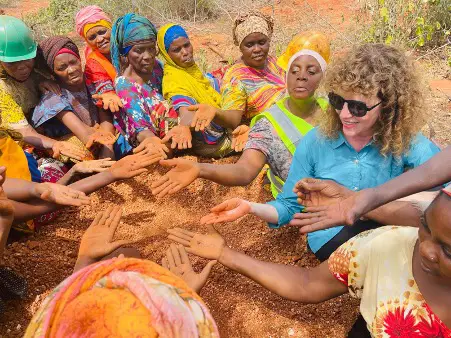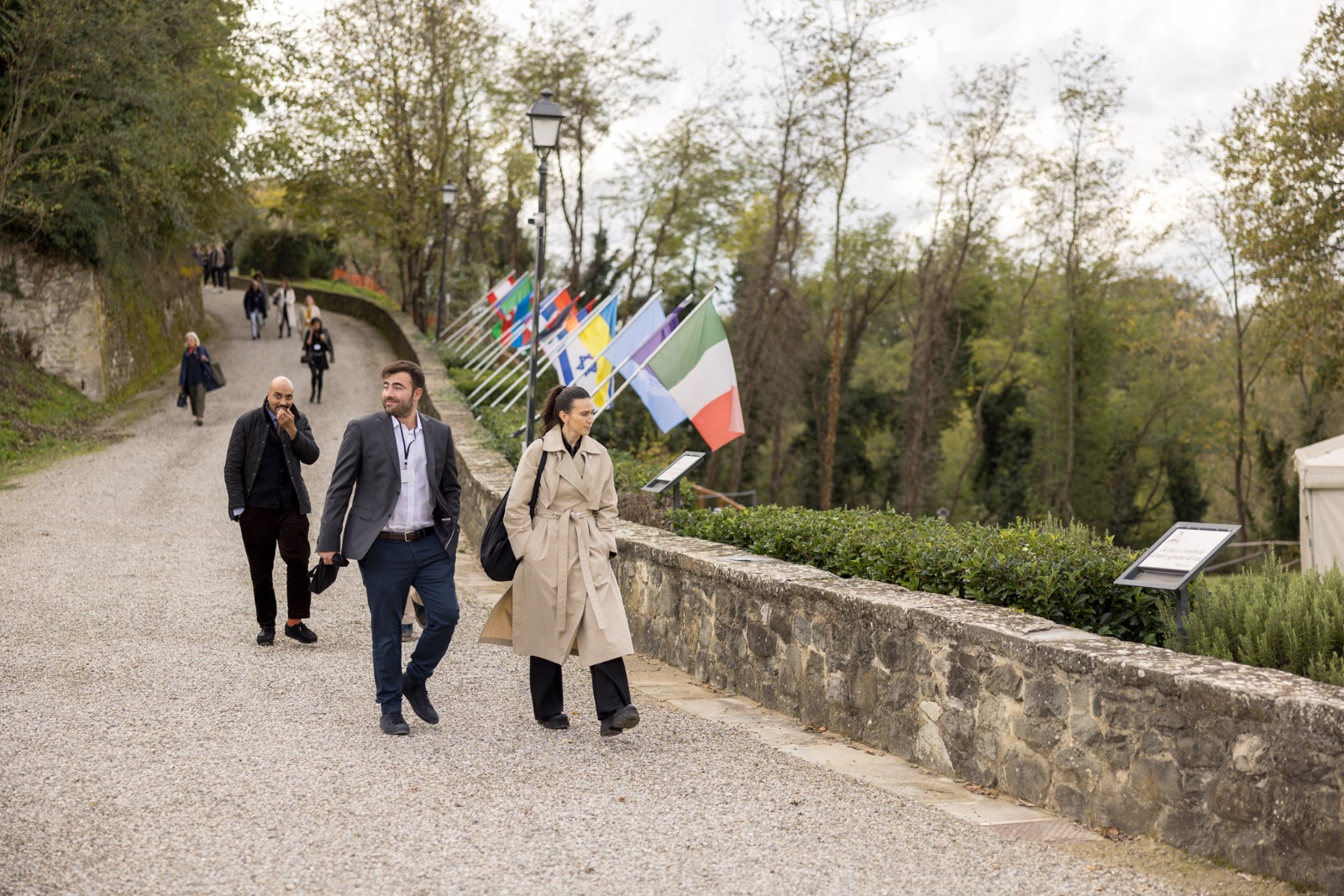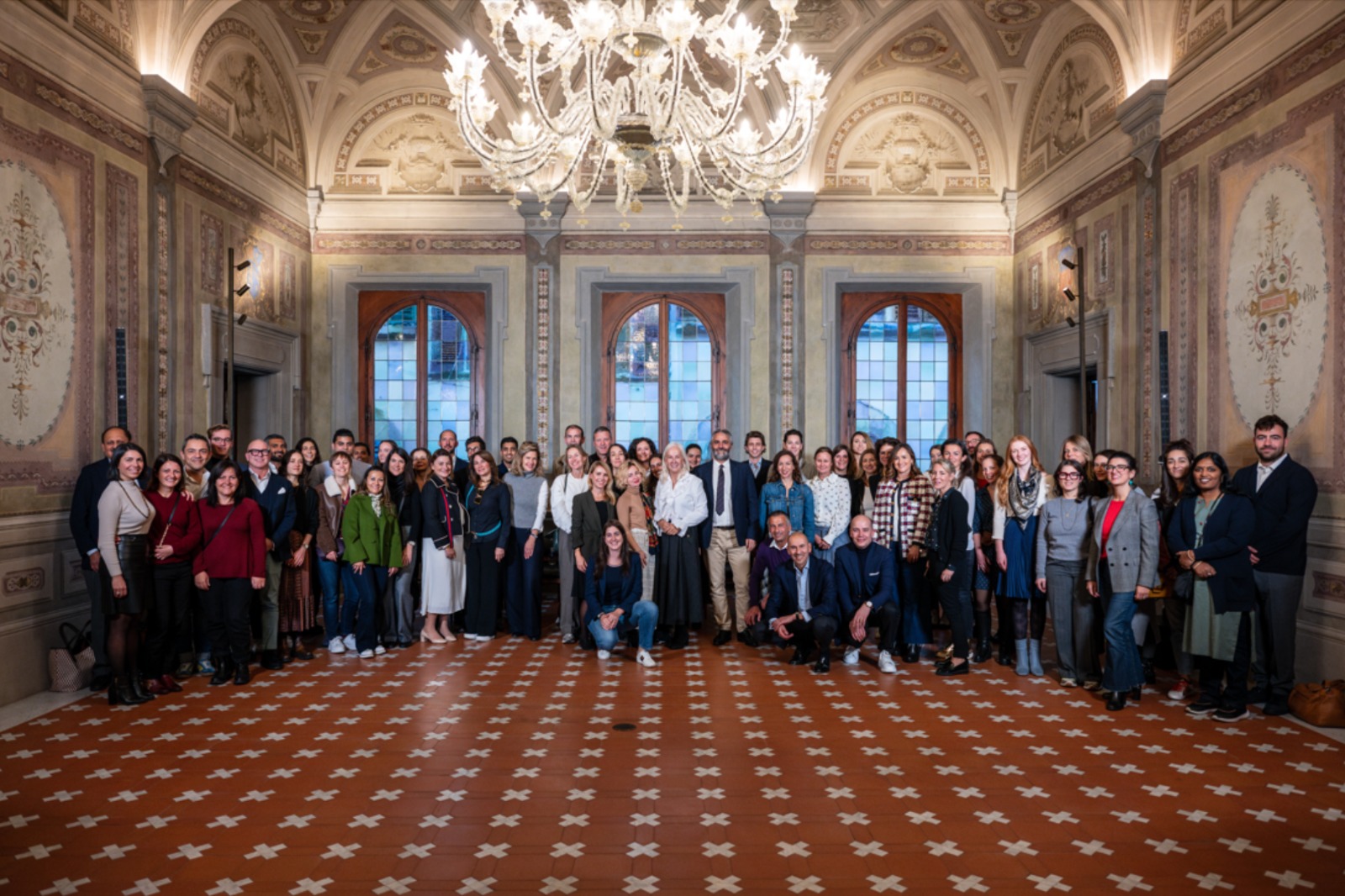Dr. Helen Crowley stands at the forefront of the intersection between climate, nature, and business, emphasizing the vital role of supply chains as drivers of positive change. She explores the imperative for companies to prioritize biodiversity, the accelerating trends in accountability and disclosure, and recommendations for those embarking on their journey, while shedding light on the role WJI 2030 members play in accelerating progress on biodiversity within the luxury industry.
Having earned her PhD in Zoology from the Australian National University before embarking on conservation work across Africa and Madagascar, Dr. Helen Crowley recognized the positive potential that supply chains can have as drivers of good. This objective led her to Kering, where she played a crucial role in developing the sustainability strategy around sourcing and raw materials. Now serving as the Managing Director at Pollination, a specialist climate change advisory and investment firm, Dr. Crowley continues her work at the intersection of climate, nature, and business, helping companies understand the importance of nature in their operations.
As an expert on biodiversity with decades of experience, Helen emphasizes the systemic risks posed by the significant global decline of nature.
We depend on the foundation of a functioning natural system, where interconnected elements rely on systemic thinking and change. Addressing one aspect of biodiversity often impacts others, and part of the solution lies in giving nature the ability to rebalance. When provided with space, time, and proper protection, nature has the incredible power to regenerate and heal. Trusting nature and allowing it to drive change, rather than relying on artificial or short-term fixes, is essential.
In the last four years, business leaders have increasingly recognized the importance of nature to their operations, impacting supply chains, material flow, clients, workers, and suppliers. Reports on biodiversity loss have highlighted the reality that the economy is fully dependent on services provided by nature and its role in addressing climate change. COP15 played a pivotal role in shifting the global discussion. It is now clear for many leaders worldwide that responding to nature-related challenges can strengthen supply chain resilience, prepare for shocks, adapt to the unexpected, access new markets, and meet stakeholder expectations.
How is biodiversity accelerating?
Accountability, reporting, and disclosure are becoming more important, and increasingly, mandatory. Investors show a growing interest in companies’ performances on nature-related topics. Countries like France have embraced mandatory reporting on nature-related risks, biodiversity impacts, and dependencies, with others likely to follow soon.
The participating governments at COP15 committed to eliminating harmful subsidies to nature and increasing financial support for conservation efforts by 2030, mobilizing at least $200 billion USD per year. Environmental policies, such as the deforestation-free policy and the nature restoration law, are being discussed more frequently in the EU and globally.
As stakeholders’ expectations shift business decisions, CEOs and board members are increasingly held accountable for nature-related decisions and actions. Dr. Crowley states, “Where you can draw a line between your business and environmental impacts, especially nature and biodiversity, there is a risk at all levels of the business. I don’t think everyone should react because of fear, but rather because of incentives and opportunities, as this space is rapidly evolving.”
What is recommended for companies starting their journeys?
- Gain knowledge from nature and climate-related resources. The following are excellent places to start:
- The Taskforce on Nature-related Financial Disclosure (https://tnfd.global/)
- The Taskforce on Climate-related Financial disclosure (https://www.fsb-tcfd.org/)
- SBT for nature (https://sciencebasedtargetsnetwork.org/)
- The Global Biodiversity Framework (https://www.cbd.int/doc/c/e6d3/cd1d/daf663719a03902a9b116c34/cop-15-l-25-en.pdf)
- Develop a biodiversity strategy that considers your business’s interaction with nature along the supply chain. For instance, sourcing materials like leather requires a plan in which these materials are grown and produced using a regenerative and restorative way for nature while creating positive outcomes along the supply chain for everyone involved.
- Make a decarbonization commitment and plan to address supply chain emissions and eliminate fossil fuels.
- Do not mine in natural heritage sites or high biodiversity areas. Mining requires impacting and destroying biodiversity and ecosystems, businesses have a greater responsibility to minimize these impacts and strategically address impacts based on the supply chain geographies. Mitigating mining’s negative impacts, mining responsibly and efficiently and restoring and rehabilitating the land, the animals and the ecosystem where the mine is located.
- Reduce the use of any resources from land to water. Water and water pollution (chemical use) are highly used in watch and jewellery supply chains. Thinking about how water is used in your supply chain, taking into account if it’s a water-stressed area, where water comes from and how it flows back into the ecosystem (impacting animals and plants that are dependent on these water sources).
What role do WJI 2030 members have in accelerating progress on biodiversity?
As members deeply committed to climate resilience and resource preservation, WJI 2030 can bring a full value proposition mindset to nature-related issues. Supporting suppliers to bring positive benefits to local production, community, and the planet is crucial. Additionally, protecting ecosystems like seagrass or mangroves delivers substantial benefits, from carbon uptake to building extreme weather resilience for local communities. Creating an accessible interface for people to understand and act on nature-related problems is another vital role that members can focus on.
As the focus on biodiversity grows, the watch and jewelry sectors should stay informed about new research and lead the change in the luxury industry. Being knowledgeable leaders and basing actions on education will accelerate progress. “The value that nature provides is priceless,” treating it like luxury with its rare balance will lead to prosperity and a positive future for our industries.









